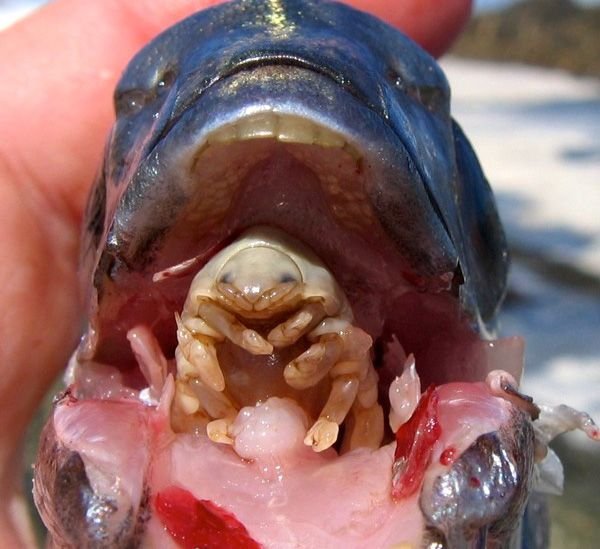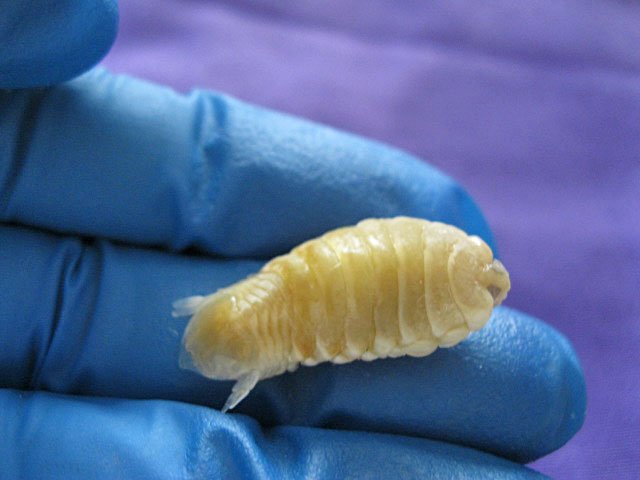DEADLY PARASITES
The exigua cymothoa is an isopod crustacean in the cimotoid family, and can grow up to 10 mm. length. It is a parasite that attaches to the tongue of its host fish by its three pairs of forelegs, then drinking from the artery that supplies blood to this organ. Over time, the tongue will atrophy until it completely disintegrates, and the crustacean replaces the organ's function with its own body and relieves the blood pressure of the host's circulatory system there. The fish can use the parasite as if it were a normal tongue, and it does not take further damage, as the exigua cymothoa feeds on the mucous membranes of the fish, so it does not seem to show much interest in the food that its host ingests.

Its distribution is quite extensive, since it can be found from the southern Gulf of California, to the northern Gulf of Guayaquil in Ecuador. Although few studies document in more detail the biology and reproduction of these crustaceans, it is believed that the rare Cymothoa parasites are all born as males and have the ability to change sex according to the circumstances. That is, if there is no female present, but only two males, one of them can become female in order to reproduce.
This crustacean parasites eight different species of fish, including some commercial ones, and is the only known parasite that successfully replaces an organ from its host.

The exigua Cymothoa is not a toxic and dangerous animal for humans, although it is believed that the only way this parasite minimally harms a person is by bite when captured alive.
